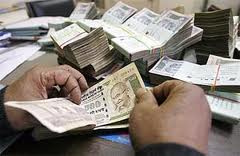
New Delhi, Mar 1: A hike of Rs 214 crore was allocated to the Ministry of Youth Affairs and Sports with Finance Minister P Chidambaram earmarking Rs 1219 crore for it in the 2013-14 budget presented in Parliament on Thursday.
Chidambaram allocated Rs 1093 crore as plan outlay while Rs 126 crore was set aside for non-plan. Last year, the Ministry was allocated a total of Rs 1152 crore but it was later revised to 1005.60 crore.
In a bid to improve the sports standard in the country, the National Institute for Sports in Patiala will train coaches and an amount of Rs 250 crore has been earmarked for the purpose.
Out of the total outlay, Rs 792.72 crore has been allocated for sports and games while Rs 301 crore has been set aside for Youth Welfare Schemes. Other programmes, including Schemes for the Benefit of North Eastern Area and Sikkim, will get Rs 109.40 crore.
Under the sports and games head, Sports Authority of India will get the highest amount of Rs 326 crore while Rs 160 crore has been earmarked for Assistance to National Sports Federations — as against Rs 110 crore of last year. An amount of Rs 10 crore has been earmarked for talent search and training scheme, while Rs 8.30 crore has been allocated for Anti-Doping Activities as compared to 4 crore last year. National Dope Test Laboratory will get Rs 5.70 crore, representing a significant hike compared to 2.50 crore last year.
The various schemes under Panchayat Yuva Krida aur Khel Abhiyan (PYKKA) will get Rs 180 crore, Rs 35 crore less than last year, while Rs 45 crore has been earmarked for Urban Sports Infrastructure Scheme.
The National Sports Development Fund has been allocated Rs five crore, the same as last year.
Among the various heads of Youth Welfare Schemes, Rs 127.48 crore has been earmarked for Nehru Yuva Kendra Sangathan while the National Service Scheme will get Rs 76.31 crore — about 3 crore less than last year.
Laxmi Bai National Institute of Physical Education has been allotted Rs 20 crore, Rs five crore more than last year, while Rajiv Gandhi National Institute of Youth Development has been allocated Rs 2 crore. Meanwhile, the Sports Ministry has welcomed the increase in the budget.
“We are very satisfied about the extent of plan budget increase. It is close to 50 per cent and given the extreme fiscal stress, the Finance Minister has been very generous,” said Sports Secretary Pradeep Kumar Deb.




Comments
Add new comment